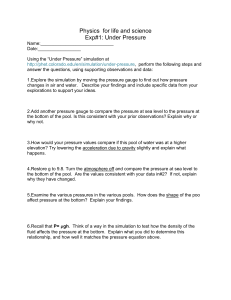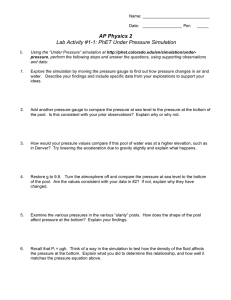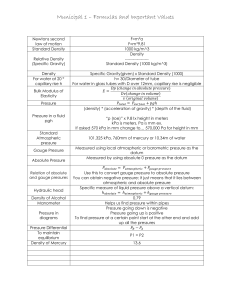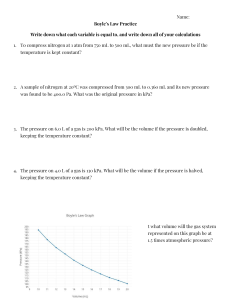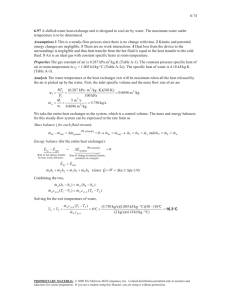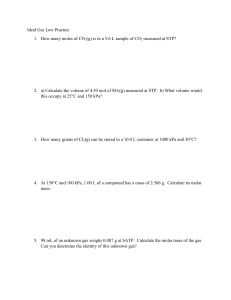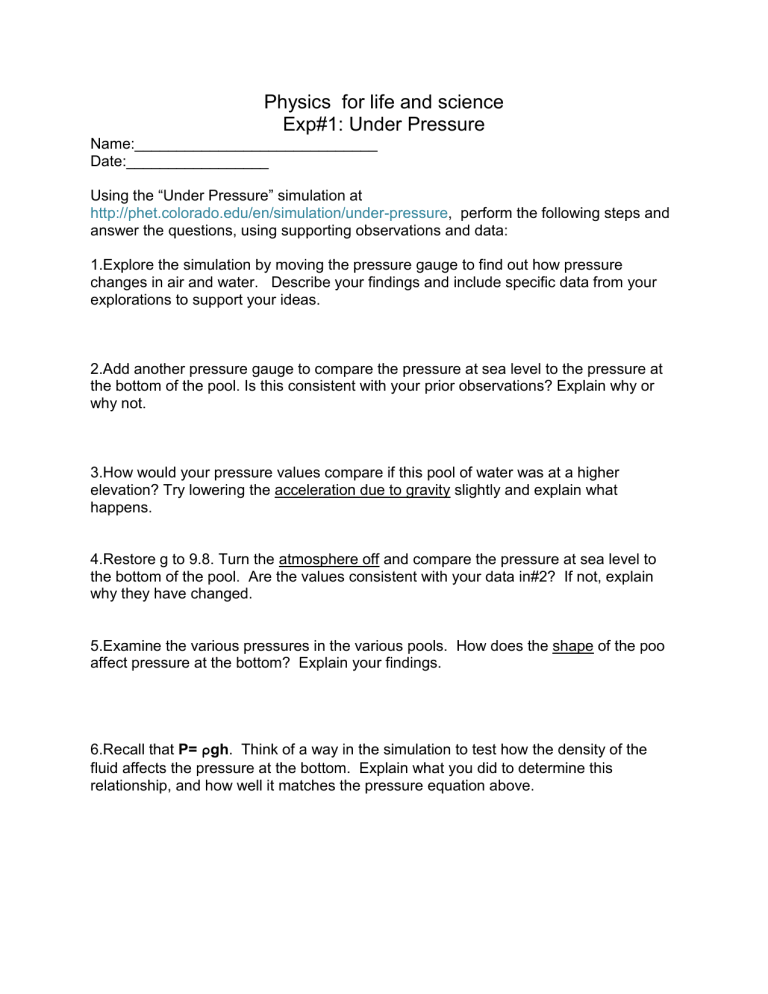
Physics for life and science Exp#1: Under Pressure Name:_____________________________ Date:_________________ Using the “Under Pressure” simulation at http://phet.colorado.edu/en/simulation/under-pressure, perform the following steps and answer the questions, using supporting observations and data: 1.Explore the simulation by moving the pressure gauge to find out how pressure changes in air and water. Describe your findings and include specific data from your explorations to support your ideas. 2.Add another pressure gauge to compare the pressure at sea level to the pressure at the bottom of the pool. Is this consistent with your prior observations? Explain why or why not. 3.How would your pressure values compare if this pool of water was at a higher elevation? Try lowering the acceleration due to gravity slightly and explain what happens. 4.Restore g to 9.8. Turn the atmosphere off and compare the pressure at sea level to the bottom of the pool. Are the values consistent with your data in#2? If not, explain why they have changed. 5.Examine the various pressures in the various pools. How does the shape of the poo affect pressure at the bottom? Explain your findings. 6.Recall that P= ρgh. Think of a way in the simulation to test how the density of the fluid affects the pressure at the bottom. Explain what you did to determine this relationship, and how well it matches the pressure equation above. 7.Now, try a quick 3-part experiment. In the first slide, fill the pool and shut off the atmosphere. For each step, make a note of any observations or data from the simulation I. Measure the pressure of the water at a depth of 1 meter, then 2 meters, then3 meters. Depth(m) Absolute pressure(kPa) Gauge pressure(kPa) 1 2 3 II. Put the gauge at a depth of exactly 1 meter (it should read 9.8 kPa). Now change gravity to 4.9 m/s2, and then to 19.6 m/s2. Gravity(m/s2) Absolute pressure(kPa) Gauge pressure(kPa) 4.8 9.8 19.6 III.Put the gauge at a depth of 1 meter and set gravity back to 9.8m/s2. Change the fluid density to 700 kg/m3, and then to1400 kg/m3. fluid density kg/m3 700 1000 1400 Absolute pressure(kPa) Gauge pressure(kPa) Summarize I,II,and III by stating what factors affect pressure and whether the effects are direct or indirect. Compare your summary to the equation P l= ρgh. Do they match up? Explain 8.Finally, go to the last slide with the question mark in the pool. In this step of the simulation, use your knowledge of pressures in liquids to determine the densities of Fluids A, B and C. a) What is the density of Fluid A? b) What is the density of Fluid B? c) What is the density of Fluid C? d) What is the acceleration due to gravity of Mystery Planet A?
